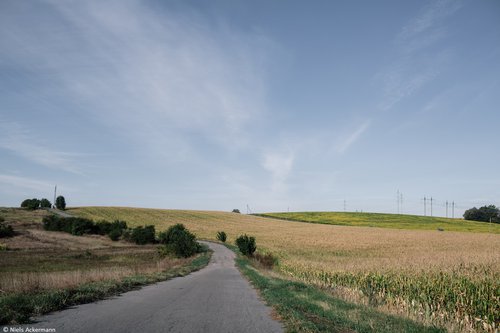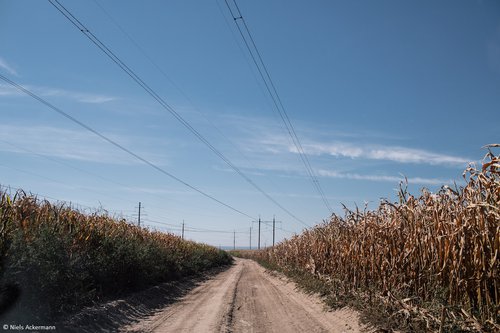SUCCESS STORY: Bulgaria data campaign - Overcoming poor data coverage through local partnerships
Authors: Mykhailo Amosov and Danya-Zee Pedra
As the demand for land and natural resources accelerates in Eastern Europe, reliable, up-to-date data is crucial to monitor large-scale land acquisitions (LSLAs) in order to ensure that their negative social and environmental impacts can be mitigated. However, collecting information about land deals is often a difficult process, especially in countries like Bulgaria, where poor data coverage and other limitations are prevalent. How then did Ecoaction overcome these challenges and go on to run a successful data campaign?

Agricultural holdings in Bulgaria are extremely polarised. In 2010, for example, 80% of the holdings controlled less than two hectares (ha) each and only a little over 3% of the utilised agricultural area (UAA) collectively. In sharp contrast, only 1% of holdings had over 100 ha, but controlled 82% of the total UAA. In addition, as a result of Bulgarian land market specificities – it is impossible to acquire large tracts of land in a single deal and therefore land ownership is still extremely fragmented (despite land use being highly centralised) – there is generally low interest by foreign investors. At the same time, there has been a significant shift towards increased production of cash crops for exports, such as grain, oilseed, and technical crops. This situation has created a strong trend towards land grabs and land over-centralisation.
While these dynamics are apparent, very little data is accessible on land deals in Bulgaria, even though the country has both a Property Registry and the Land Cadastre. The Property Registry can be used to trace each individual property acquisition contract, including the location of the land, which can sometimes subsequently be traced in the Land Cadastre. However, there are some substantial limitations in the data sources, including that the Cadastre does not yet fully cover the territory of Bulgaria. Moreover, the majority of deals are for very small tracts of land (commonly from 0.05 ha to 1 ha), and the “larger” deals thus consist of hundreds of small deals. For this reason, detecting an acquisition of over 200 ha (one of the criteria for inclusion in the Land Matrix global database) by a single company within one year means going over several hundreds of pages of documentation for minor deals. Since a fee of 0.5 EUR needs to be paid to the registry in order to access each document, this process ends up being exorbitantly expensive. Furthermore, there is no way of knowing if a legal entity purchased over 200 ha in a given period as this information is not accessible either.
Nevertheless, as data coordinator for the Land Matrix Eastern Europe Regional Focal Point Mykhailo Amosov explains, it was still important to find more information on land deals in Bulgaria as the country was under-represented in the Land Matrix database, despite the potential richness of data. Recognising the importance of understanding the local context, in 2019 Ecoaction therefore decided to use a different data collection strategy: engaging a local organisation from the country of interest in running a data campaign.
Bulgarian civil society organisation Za Zemiata was identified as an ideal partner, given its interest in the agricultural field and its experience in land grab research, and was subsequently approached to conduct the data campaign. The aim of the campaign was to capture at least 35 transnational deals, which Za Zemiata achieved using typical data collection instruments, including requests to official bodies and analysis of existing literature in the public domain. However, they also had one significant advantage – citizens of Bulgaria have access to national databases.

The data campaign was not only valuable from the point of view of collecting data, but also, through Ecoaction’s launch and media activities, as well as a meeting arranged by Za Zemiata with a prominent scientist in economy of agriculture, as a platform through which the Land Matrix and its work within the region could be promoted. Likewise, it presented an opportunity to raise awareness around LSLAs in the region in general.
Along with collecting data on deals, Za Zemiata further provided an overview of the land situation in Bulgaria and an analysis of LSLAs and land grabs. This revealed that investigated deals (both national and international) tend to be directed towards land speculation via investment funds, which are interested in the relatively secure and predictable profitability rates. Only five of all investigated deals, totalling 6 534 ha, were intended for direct farming for the production of food.
Looking at the results of the data campaign – the capturing of detailed information on 35 deals (21 at transnational level and 14 at national level), compared to only four deals recorded previously – it is clear that this is a productive approach to data collection that can effectively close data gaps. However, the success of this approach will depend on being able to find a local organisation with which to work, and that organisation’s ability to efficiently gather information on the ground.
The Centre for Environmental Initiatives Ecoaction is a civil society organisation that consolidates experts and activists for common action from Europe to Central Asia, and works to change state practices and policies in the energy, transport, and agriculture sectors to consider environmental and social impacts. Ecoaction is responsible for the management of the Eastern Europe regional page and coordinates data collection, research, networking, and communications for the region.
Za Zemiata (Bulgaria) is an independent non-profit non-governmental organisation that promotes sustainable solutions for zero waste, energy and climate, food sovereignty, air quality and education. It works through awareness-raising and capacity building to mobilise and empower local communities to take action on environmental conflicts, such as unsustainable energy projects, air pollution, waste incineration and landfilling, and damage of protected areas.